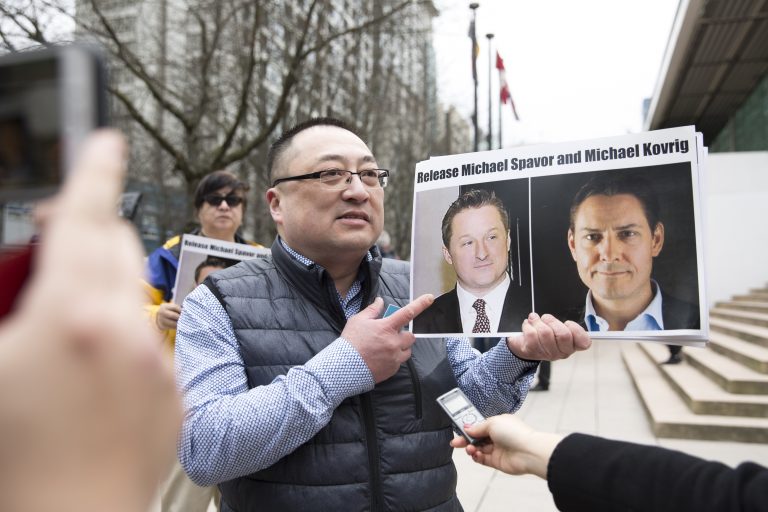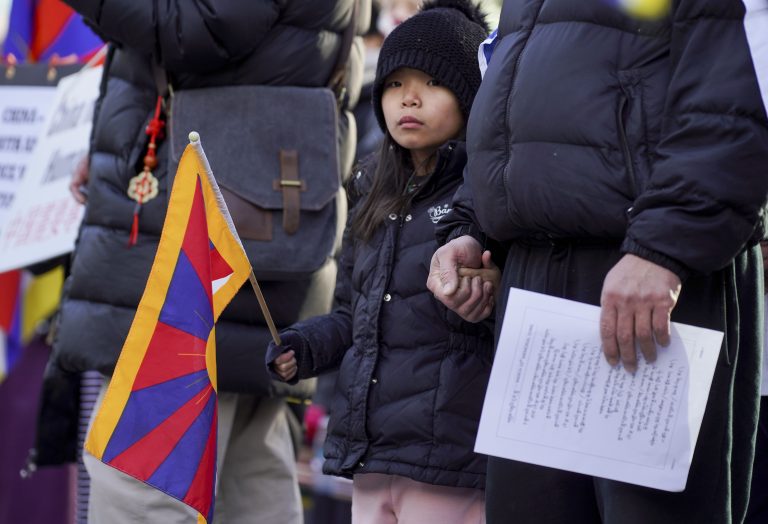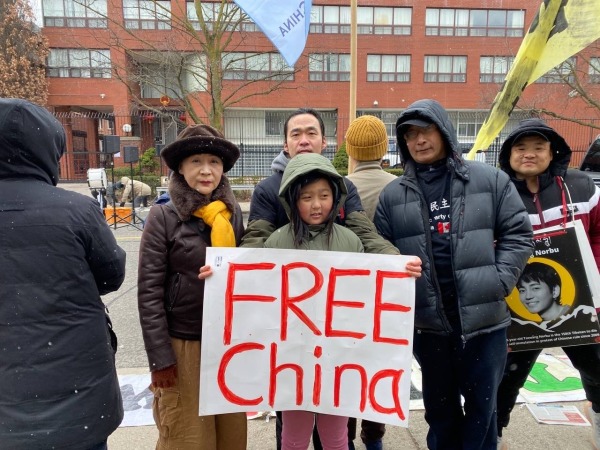Canadians are breathing a sigh of relief after two Canadian nationals, Michael Kovrig and Michael Spavor — who have spent close to 3-years in the Chinese prison system — touched down on Canadian soil after being freed following a U.S. court deal that resulted in the release of Huawei executive, Meng Wanzhou.
Kovrig and Spavor landed in Calgary, Alberta Canada at approximately 8 a.m. ET on Saturday Sept. 25 following a flurry of activity and a stunning reversal by the Chinese government.
Their release was announced Friday evening by Canadian Prime Minister, Justin Trudeau, mere hours after the extradition case against Huawei executive Meng Wanzhou was dropped. Meng reached a deferred prosecution agreement with U.S. authorities related to fraud charges against her on Friday and traveled back to China Saturday morning following three years of house arrest in the Canadian province of British Columbia.
The deferred prosecution agreement resulted in Meng simultaneously pleading not guilty to the charges levied against her while agreeing to a statement of facts that indicates that she was culpable.
In a press conference Trudeau said, “These two men have gone through an unbelievably difficult ordeal,” adding that, “For the past 1,000 days, they have shown strength, perseverance, resilience and grace.”
Success
You are now signed up for our newsletter
Success
Check your email to complete sign up
Both Kovrig and Spavor were first detained in December 2018 immediately following the arrest of Meng in Canada on behalf of the U.S. authorities.
Their detention was widely believed to be an act of hostage diplomacy by the Chinese and recent events have all but confirmed that this was indeed the case.
Several diplomats and foreign policy experts agree that the timing of the release of Meng, Spavor and Kovrig indicates that China clearly saw a connection between the three.
Colin Robertson, a former Canadian diplomat for more than 30 years told the Canadian Broadcasting Corporation (CBC) that, “China … up until now, has said that there’s been no linkage between the two, but by putting them on the plane [Friday night], they’ve clearly acknowledged that this was hostage-taking.”
Margaret McCuaig-Johnston, a senior fellow at the Graduate School of Public and International Affairs at the University of Ottawa noted that Spavor and Kovrig’s detention has sent a clear message to other countries. She said “if [other countries] cross China, then Beijing will just pick up a couple of their citizens and hold them hostage,” adding that, “that’s a chilling message for other countries to be receiving today.”
As to what occurred to ultimately secure the release of Kovrig and Spavor is still unknown however many are speculating that the Biden administration may have struck a deal that resulted in all parties in the matter going free.
McCuaig-Johnston believes that the Biden administration played a key role in securing the release of the two Canadians.
Canadians react
Erin O’Toole, leader of the official opposition party in Canada tweeted his elation after hearing the news of the two Michael’s release.
Jagmeet Singh, leader of Canada’s New Democratic Party tweeted, “They’re on their way home, Canada! Michael Spavor and Michael Kovrig, Canadians rejoice knowing you’ll be home soon with your friends and families. To all the consular officials and diplomats that did their part, thank you!”
Others had a more sombre message. Guy Saint-Jacques, who served as Canada’s ambassador to China from 2012 to 2016, told CBC news that it is impossible to ignore China, given its strength and importance in the world, but the approach should be “strategic” and “restrained.”
“The message to China is simple, it’s we have no problem with you being a superpower. But as long as you respect international treaties, international obligations and you don’t engage in bullying tactics,” he told CBC.
While Justin Trudeau deflected questions on Friday concerning what the return of the two Canadians would mean for Canada’s relationship with China, others expressed that the relationship between Canada and China has been permanently damaged.
Lynette Ong, a specialist on China at the Munk School of Global Affairs, told CBC journalist Chris Hall, that a return to “normal” would be “very hard to execute” adding that, “I don’t think Canada-China relations could actually be repaired. We’re living in an entirely different world now.”
A long journey
The fate of both Spavor and Kovrig was extremely murky just a few short days ago.
In August, Spavor, after years of detention in one of China’s many “residential surveillance at a designated location” (RSDL) prisons was sentenced by a court in Dandong to 11-years in prison.
At the time Canadian Prime Minister, Justin Trudeau, blasted the verdict as “absolutely unacceptable and unjust, ” adding that “The verdict for Mr. Spavor comes after more than two-and-a-half years of arbitrary detention, a lack of transparency in the legal process, and a trial that did not satisfy even the minimum standards required by international law.”
In March, China’s state-funded media tabloid, the Global Times, said that Spavor, who resided near the North Korean border and conducted cultural exchanges with the North Koreans, was accused of supplying intelligence to fellow Canadian Michael Kovrig, a former diplomat who worked for the International Crisis Group.
According to their website, the International Crisis Group “is an independent organization working to prevent wars and shape policies that will build a more peaceful world.” No reaction to Kovrig’s release has been posted to the group’s website as of yet.
At a closed-door hearing in March, Kovrig, who had been detained since December 2018, went on trial to face charges of espionage. The trial lasted a single day with Canadian diplomats being barred from attending. Court officials stated that entry was not allowed because the trial was a national security case.
At the time, representatives from 26 countries gathered outside the Chinese court house “lending their voice” for Kovrig’s immediate release.
Hua Chunying, a Chinese foreign ministry spokesman said at the time, “Be it a few or dozens of diplomats trying to gather and exert pressure, it is an interference in China’s judicial sovereignty … and not something that a diplomat should do.”
Guy Saint-Jacques, told Agence France-Presse at the time that, “China does not even try to make this look like a real trial as evidence is not shared with the defence and the judge does not even take the time to review it,” adding that, “It just confirms that the process is preordained by the Communist party and this is a political case,” The Guardian reported.
Saint-Jacques said: “The message to the USA is: if you want to help the Canadians, make sure that Meng is returned quickly to China.”













